5 Most Profitable Farm Business Ideas In 2024
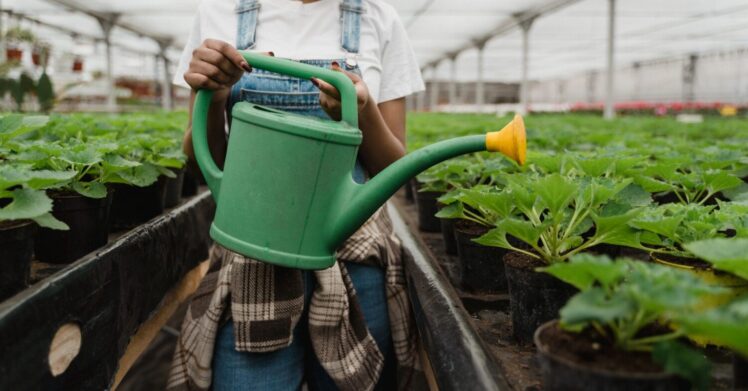
Ready to start your farming empire in 2024? Before you get your hands dirty, it’s important to know what the most profitable farm business opportunities are for the coming year. We’ve compiled a list of some of the top ideas, so you can get your growth on and make 2024 an incredibly lucrative year for your farm business!
1. Swine Farming
Swine farming is a major agricultural business in the world and is steadily growing in popularity due to the high demand for pork and its by-products. Pig farmers supply nearly 61% of all pork consumed in the United States alone. Pigs are relatively inexpensive to maintain, yet they can generate large profits, especially when managed properly. With careful consideration to detail and proper planning, entrepreneurs may find that it can be an extremely profitable venture even in challenging economic times.
In order to establish a profitable swine farm operation the farmer must first develop an understanding of the swine industry. According to Canarm, essential information such as breed selection, food and water management, herd health care maintenance, building construction and waste disposal systems should be researched before starting such a business venture. In addition to investing in quality pig feed and maintaining proper hygiene protocols while raising pigs, successful swine production operations also require regular breeding programs to increase efficiency as well as providing marketing backgrounds with potential buyers early on; establishing connections with potential buyers before actually beginning production allows for more flexibility when pricing products for sale.
2. Aquaponics Farming
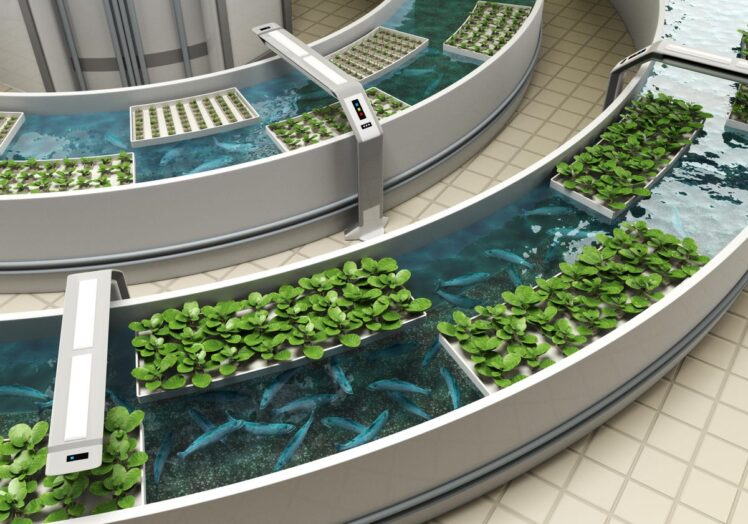
Source: forbes.com
Aquaponics farming is a growing trend that is becoming increasingly popular among farmers looking to diversify and increase their revenue. This type combines raising fish with cultivating vegetables, herbs and other plants. Water from the fish tanks is recirculated through plant beds, providing natural nutrients for the plants and a continuous supply of recycling water for the fish. Both produce an income for the farmer, which can be significant depending on size and product quality. It requires knowledge and dedication, but offers substantial rewards in terms of productivity and profitability over traditional gardening methods. With increasing demand for locally-farmed foods, aquaponics farming is likely to become even more popular in 2024.
3. Vertical Farming
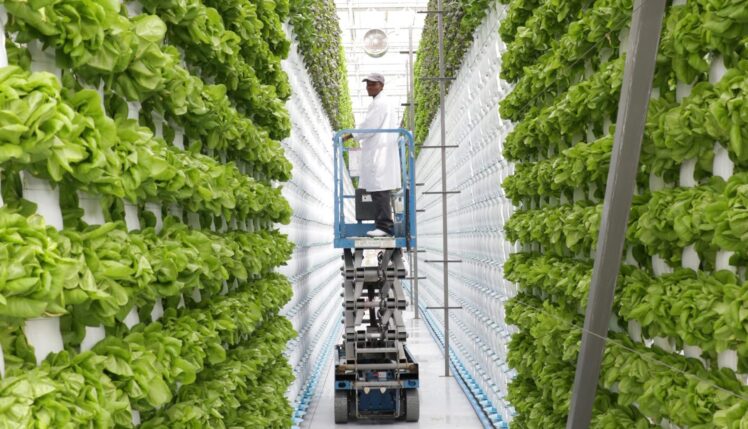
Source: climatechampions.unfccc.int
It is a type of indoor farming where foods are grown in vertically stacked layers, rather than traditional methods in which crops are grown in horizontal rows of soil. This type of farming not only reduces the amount of space needed to produce the same yield, it can also be used to grow crops all year round regardless of climate and weather conditions. By utilizing advances in hydroponic technology and nutrient delivery systems, vertical farms have become increasingly cost-effective, especially when compared to traditional outdoor farms.
Vertical farms have several advantages over outdoor farming such as decreased bills for heating, cooling and ventilation as well as increased crop yields due to a more controlled environment that eliminates many diseases typically passed on through outside agents like birds or insects. These advantages translate into higher profits and have encouraged many investors to join the vertical farming movement. Furthermore, vertical farms allow farmers to grow rare or exotic crops without having to worry about soil depletion due to intensive cultivation since they don’t require soil. This makes them a potentially very profitable venture for enthusiastic farmers looking for new opportunities in 2024 and beyond.
4. Hydroponic Farming
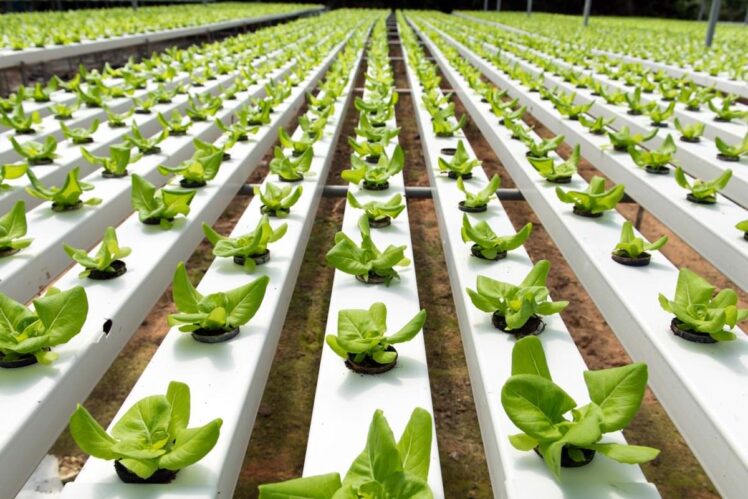
Source: risehydroponics.in
It is one of the most profitable farm business ideas for 2024. The term “hydroponics” comes from the Greek words “hydro,” meaning water, and “ponos,” meaning labor. Hydroponic farming is a method of growing plants without soil, by using water-based nutrient solutions and other techniques such as setting up elaborate grow systems in indoor spaces. It has numerous advantages over traditional soil-based farming including eliminating the need for weeding and cultivating, reducing the risk of soil-borne diseases, and allowing plants to mature more quickly. Hydroponics is becoming increasingly popular with entrepreneurs interested in starting sustainable and lucrative farm businesses due to its flexibility, easy access to materials and products, as well as its potential for large returns on small investments. From simple single crop systems grown in containers or recirculating tanks to smart pump controlled automatic grow systems hydroponic farming can produce fresh produce year-round with less resources than conventional outdoor gardening or large-scale agricultural operations.
5. Organic Farming
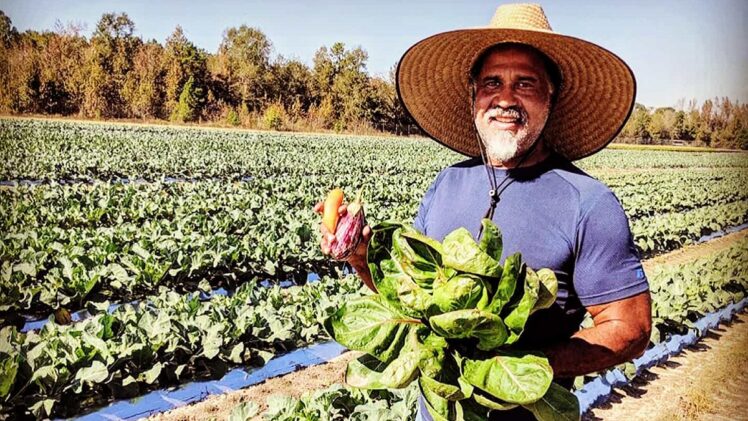
Source: alabamanewscenter.com
It is the practice of growing crops and raising livestock in a way that avoids toxic chemicals, synthetic fertilizers, irradiation, genetic modifications and other artificial inputs. Consumers are increasingly looking for organic options in their shopping cart as they grow more aware of the environmental and health benefits of organic produce.
In addition to careful management of soil fertility and pest control, organic farming involves specific production practices like cover cropping, crop rotation, companion planting and composting. Organic certification authorities must approve any farms that wish to market their products as “organic” and, in most countries, different standards exist for organic animal husbandry where animals have access to outdoors or grazing areas.
Organic farming can be a profitable business for the right farmers; costs are typically lower than for conventional farms due to not having to purchase expensive synthetic inputs. To begin your venture into organic farming it is important to thoroughly research it; this includes researching consumers’ demands in your area so you can create customer profiles that will best serve you in marketing and commercializing your products. Additionally, you have to have proper land management as well as adequate knowledge of sustainable infrastructure such as housing and food processing systems. In this way you can ensure that your farm is producing quality produce while being cost-effective and profitable year-round.
Conclusion
For those interested in starting their own farm business, there is an array of profitable options to consider. In addition to agriculture, there are a variety of related businesses, such as food processing, poultry farming, beekeeping and value-added products. Those looking to make the most of their farms should also research alternative methods and technologies that can maximize resource use and efficiency.
The profitability of any given farm business idea will depend on local conditions and resources available. Nonetheless, careful planning and research can provide a roadmap for success that maximizes potential profits while upholding environmental and social responsibility principles. By taking the time to evaluate potential opportunities in the context of current trends and developments, future farmers can set themselves up for a successful enterprise in 2024 and beyond.





